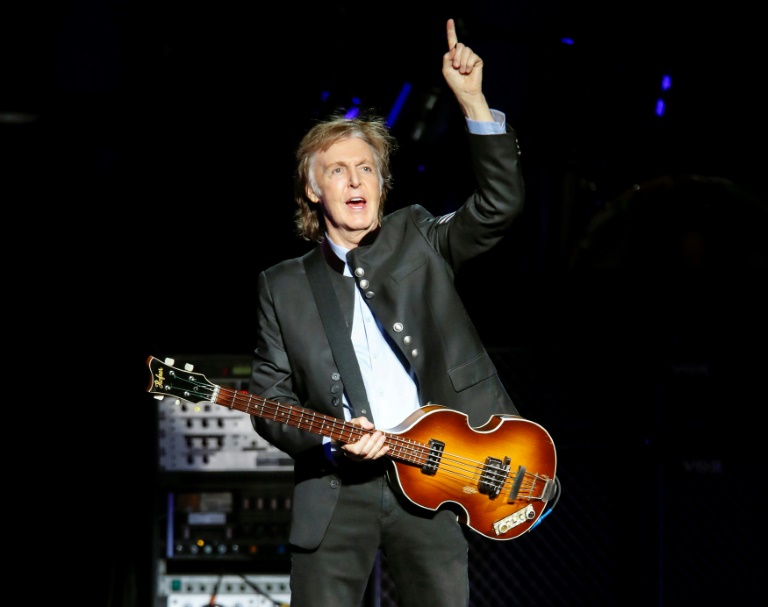
Music legend Paul McCartney was among those pushing to make online platforms legally liable for copyrighted material put on the web by users.(Photo: AFP)
The European Parliament rejected Thursday a highly controversial EU copyright law proposal that has pitted Beatles legend Paul McCartney against internet giants and the creators of Wikipedia.
Lawmakers are now expected to return in September to the plans, which are aimed at ensuring creators of creative content -- whether music, movies or news -- are paid fairly in a digital world.
The draft law was firmly resisted by major US tech giants as well as advocates of internet freedom, with some campaigners warning it could even spell the end of viral "memes" or jokes.
"Today's vote represents a victory for democracy," said Siada El Ramly, head of EDiMA, a lobby representing Google, Facebook and other US tech giants.
Members of European Parliament meeting in the eastern French city of Strasbourg voted 318 against the measure, 278 in favour, with 31 abstentions.
The vote would have given MEPs the mandate to start negotiations with member states for a finalised law which Austria, holder of the EU's six-month rotating presidency, would like finished by the end of the year.
"Today's vote is not a vote against the text itself but a vote to open new discussions in parliament," said Greens MEP Pascal Durand.
"We want a more balanced text that protects copyright, fundamental freedoms and the indispensable freedom of the net," he said.
MEPs from France who had staunchly backed fast-tracking the reform, were furious after the vote.
US tech giants "who steal from artists and pay no taxes, have won a battle," said MEP Pervenche Beres.
MEP Marc Joulaud denounced "a lobbying campaign of unprecedented violence orchestrated by US tech giants."
"Citizens were manipulated by playing on their fears, MEPs were equated with military censors, insulted and received death threats," he said.
McCartney urges help
The two most disputed aspects of the reform are an effort to boost revenue for hard-up news publishers and a crackdown on the illegal use of copyrighted material on tech platforms such as Google-owned Youtube or Facebook.
Major publishers, including AFP, have pushed for the news media reform -- known as article 11 -- seeing it as an urgently needed solution against a backdrop of free online news that has wiped-out earnings for traditional media companies.
But opponents have called it a "link tax" that will stifle discourse on the Internet.
Resistance has been especially heated to Article 13: the proposal to make online platforms legally liable for copyrighted material put on the web by users.
Music legend McCartney as well as major music labels and film studios had lobbied politicians urging them to come together and back the changes.
McCartney wrote to MEPs accusing some internet platforms of refusing to compensate artists for their work "while they exploit it for their own profit."
He added that the issue "jeopardises the music ecosystem".
But critics said the reform will lead to blanket censorship by tech platforms that have become an online hub for creativity, especially Youtube.
It would also restrict the usage of memes and remixes by everyday internet surfers, they said.
Wikipedia went down in at least three countries on Wednesday in a protest at the upcoming vote.


